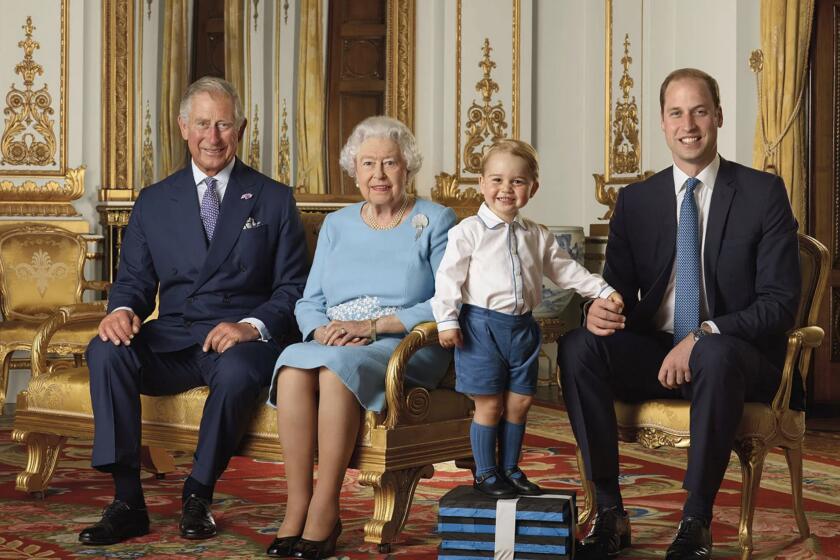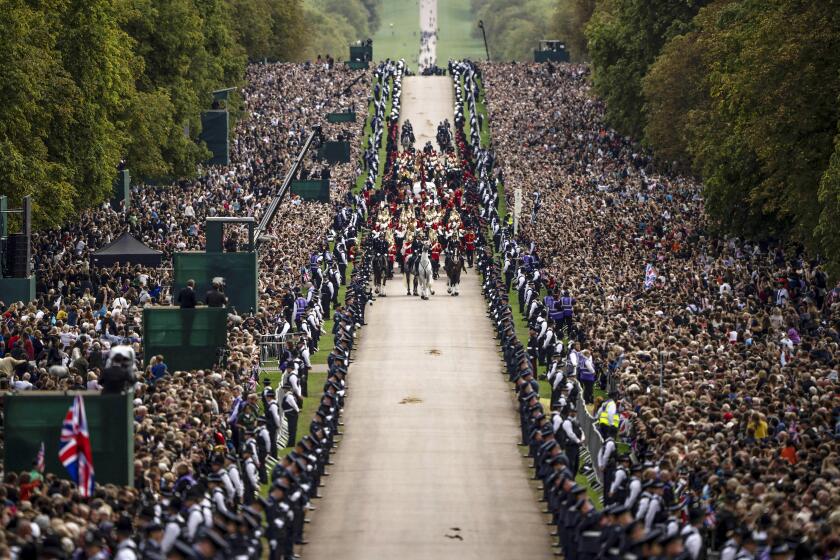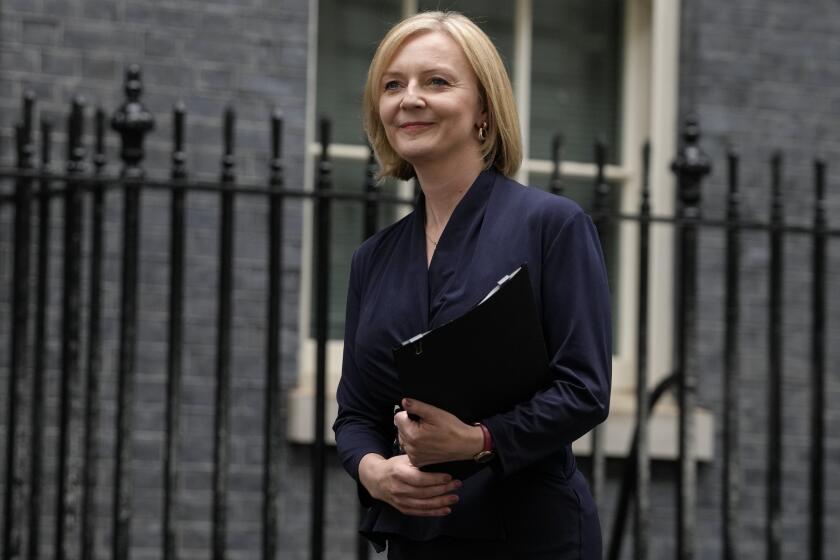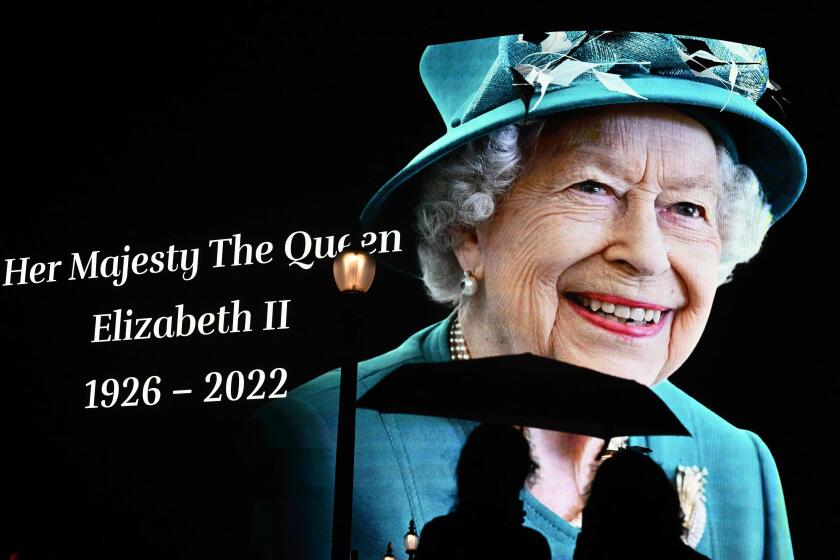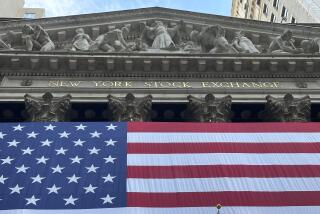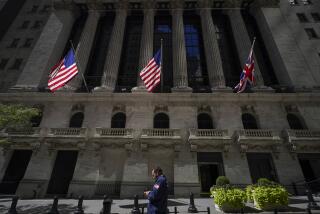British pound plunges to new low against dollar as tax cuts spark concern
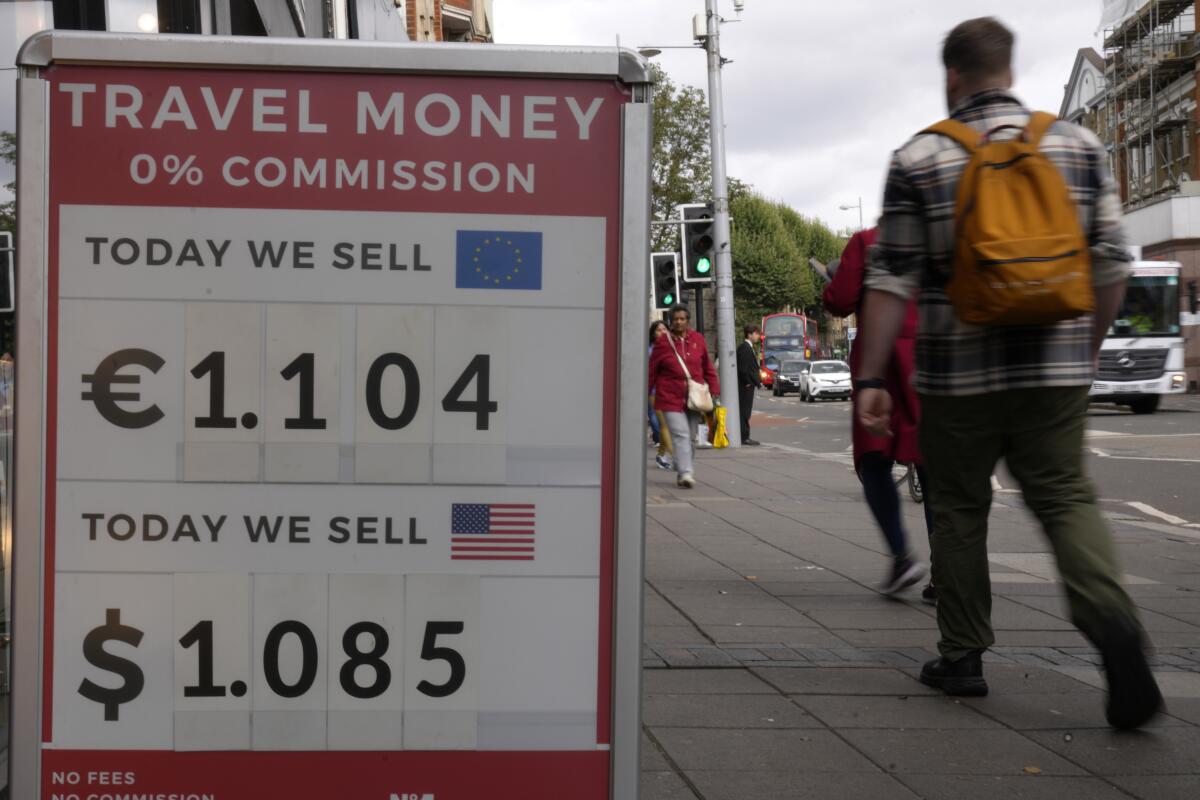
- Share via
LONDON — The pound fell to an all-time low against the dollar early Monday after Britain’s new finance minister unveiled a sweeping package of tax cuts, fueling concerns about the government’s economic policy as the country teeters on the brink of a recession.
The pound fell to as low as $1.0373, its lowest level since the decimalization of the currency in 1971, before rallying to above $1.08 in London early-afternoon trading.
The weakening currency piles pressure on British Prime Minister Liz Truss’ new Conservative government, which is gambling that slashing taxes — and increasing borrowing to compensate — will spur economic growth. Many economists say it’s more likely to fuel already high inflation, push down the pound and drive up the cost of British government borrowing — a potential perfect storm of economic headwinds.
Despite mounting concern, the government dug in its heels Monday.
“We’re not going to be commenting on daily market movements,” said the prime minister’s spokesman, Max Blain. “This is a plan for the medium to long term.”
The pound has lost more than 5% of its value against the dollar since Friday, when Chancellor of the Exchequer Kwasi Kwarteng announced Britain’s biggest tax cuts in 50 years.
Barring tragedy or revolution, Britain is set to have a man instead of a woman on the throne for the next 75 years at least.
The government plans to cut 45 billion pounds ($49 billion) in taxes as well as spend billions to help consumers and businesses struggling with the high energy bills that are driving a cost-of-living crisis. The combination sparked investor concern about spiraling government debt.
Kwarteng and Truss, who took office three weeks ago, are betting that lower taxes and reduced bureaucracy eventually will generate enough additional tax revenue to cover government spending. Economists suggest it is unlikely the gamble will pay off.
Opposition Labor Party economic spokeswoman Rachel Reeves accused the government of “a return to trickle-down economics, an idea that has been tried, has been tested and has failed.”
“They are not gambling with their money — they are gambling with yours,” she told an audience at the party’s annual conference Monday.
Britons say the still-undisclosed cost of Queen Elizabeth II’s sendoff was worth it. But at a time of hardship, it cast a spotlight on royal wealth.
Truss, who replaced Boris Johnson as prime minister Sept. 6, also faces pressure from a nervous Conservative Party, which faces an election within two years.
Some Conservatives have welcomed the tax-cutting moves as a return to free-market values after years of state intervention in the economy during the COVID-19 pandemic. But others worry it goes against Conservative values for the government to rack up huge debts that taxpayers will eventually have to pay.
Kwarteng insisted that the government was acting responsibly — and said there were more tax cuts to come.
“We’ve only been here 19 days. I want to see, over the next year, people retain more of their income because I believe that it is the British people that are going to drive this economy,” he told the BBC.
News Alerts
Get breaking news, investigations, analysis and more signature journalism from the Los Angeles Times in your inbox.
You may occasionally receive promotional content from the Los Angeles Times.
As it is cutting taxes, the government plans to cap electricity and natural gas prices for homes and businesses to help cushion price rises that have been triggered by Russia’s war in Ukraine and have sent inflation to a near 40-year high of 9.9%.
This program will cost about $65 billion, and the government will borrow to finance it, Kwarteng said Friday.
He said Sunday that it was the right policy because the government needed to help consumers squeezed by the unprecedented pressures caused by the war in Ukraine and the pandemic.
Britain can afford the cost because its debt as a percentage of gross domestic product is the second-lowest among the Group of 7 large industrial democracies, Kwarteng said. In the coming months, the government will announce plans for reducing the nation’s debt, he said.
Prime Minister Liz Truss started her first full day as Britain’s new leader amid an energy crisis that is hitting the country hard.
“Obviously, I will be setting out plans for the medium-term fiscal plan, as we’re calling it, that will show that we’re committed to net debt-to-GDP to be falling over time,” Kwarteng said.
Pound sterling is not the only currency showing weakness. The euro also hit a fresh 20-year low against the dollar as the war in Ukraine drives fears of recession and energy security ahead of the winter.
While the pound’s slide has accelerated in recent days, the currency has fallen steadily against the dollar for more than a year as investors sought the security of U.S. assets amid the global economic shocks.
The pound’s decline against the dollar also has been fueled by the Bank of England not keeping pace with the U.S. Federal Reserve’s efforts to rein in inflation. Britain’s central bank Thursday raised interest rates by half a percentage point, compared with a large three-quarter-point increase by the Fed last week. But Britain’s inflation is the highest among major economies, and the bank predicted that the country could already be in recession, defined as two consecutive quarters of economic contraction.
Queen Elizabeth II was the embodiment of the British Empire, which committed atrocities. But she also became a reassuring figure for the present.
The bank’s rate-setting Monetary Policy Committee is not due to meet again until Nov. 3, but many economists say it may have to hike rates sooner if the pound’s slide continues.
Susannah Streeter, senior investment and markets analyst at financial services firm Hargreaves Lansdown, said it was difficult to know how low the pound could fall.
“It depends, I think, now on what the Bank of England does in response to sterling’s most recent fall,” she said. “There’s been this dramatic loss of confidence in the government’s economic management. But now the ball is in the Bank of England’s court.”
More to Read
Inside the business of entertainment
The Wide Shot brings you news, analysis and insights on everything from streaming wars to production — and what it all means for the future.
You may occasionally receive promotional content from the Los Angeles Times.
